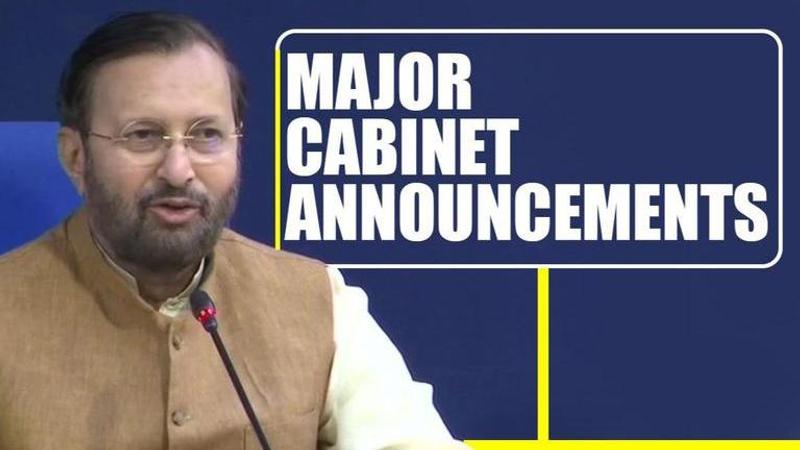Published 14:19 IST, December 4th 2019
CAB, SC/ST quota, Data Protection, Pragati Maidan & more: Cabinet takes big decisions
Union Minister Prakash Javadekar, on Wednesday, has said that the Citizenship Amendment Bill (CAB) has been cleared by the Cabinet, in a press conference

Announcing the major decisions taken by the Modi Cabinet, Union Minister Prakash Javadekar, on Wednesday, has said that the Citizenship Amendment Bill (CAB) has been cleared by the Cabinet, in a press conference in New Delhi. He added that the three Sanskrit universities will be converted into Central Universities. He also announced that the Central Sanskrit Universities Bill is to be introduced in Parliament.
Cabinet announcements
The cabinet has approved the Personal Data Protection Bill that will spell out a framework for handling personal data including its processing by public and private entities. It has also approved the Bill for increasing the term of SC/ST political reservation till 2030. Moreover, ITPO is set to undertake a mega project to redevelop Pragati Maidan into a world-class International Exhibition and Convention Centre. The withdrawal of Jammu And Kashmir Reservation (Second Amendment) Bill, 2019 to has been approved.
What is the Citizenship (Amendment) Bill?
First introduced in the Lok Sabha in July 2016, this bill was referred to a Joint Parliamentary Committee which filed its report on January 2019. The Bill was then finally passed by the Lok Sabha in January 2019.
The Bill amends the Citizenship Act 1955 to make refugees who are Hindus, Sikhs, Buddhists, Jains, Parsis and Christians from Afghanistan, Bangladesh and Pakistan, eligible for citizenship, as explained by PRS. It also relaxes the terms of naturalised citizenship, from the original 14 years to six years. Anyone belonging to the above-mentioned six religions and three countries can apply for citizenship after residing in India for the stipulated six years.
What is the Personal Data Protection Bill?
The Bill aims to lay down a framework for the processing of personal and private data by public and private entities. The Bill allows exemptions for certain kinds of data processing, such as processing in the interest of national security, for legal proceedings, or for journalistic purposes. It also has a data-localization clause, which states that certain critical personal data must be stored solely within the country. It also calls for national-level Data Protection Authority (DPA) to be set up.
Recently, data privacy came under scrutiny after it came to light that several WhatsApp users in India have been snooped by the Israel-based tech firm NSO that developed Pegasus spyware to spy on 1,400 users across the world, including 121 Indian journalists, activists. The government has pulled up Whatsapp for the data breach, saying 'Privacy of citizens is paramount'.
Updated 14:49 IST, December 4th 2019




